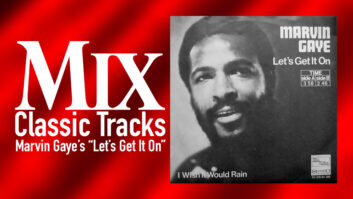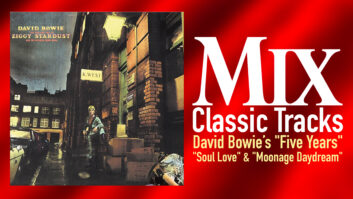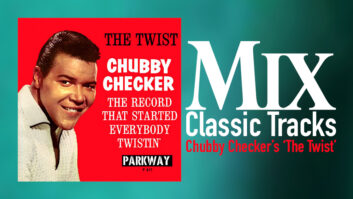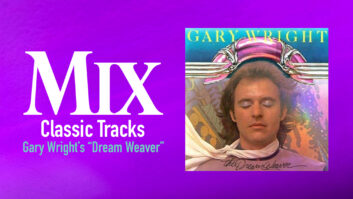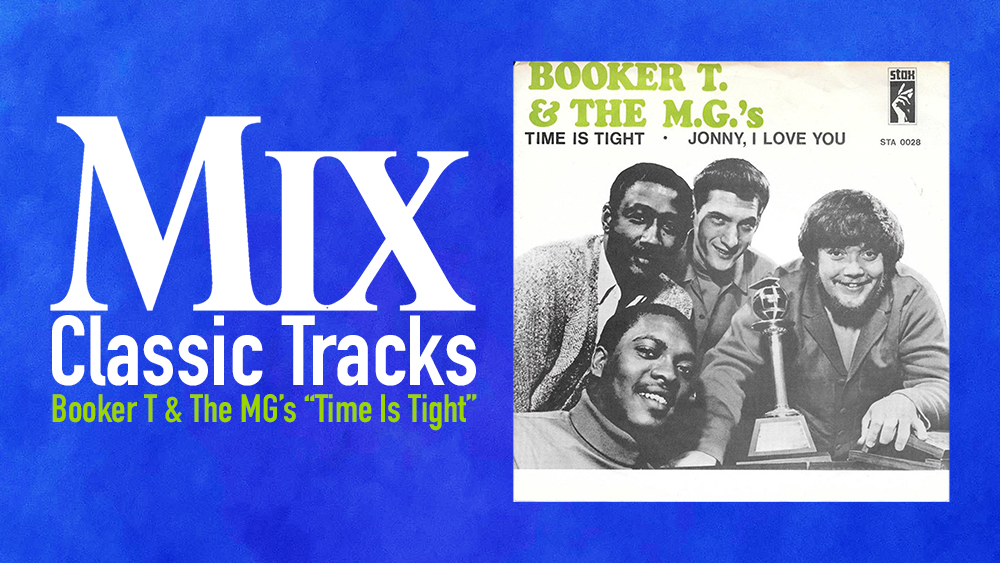 The idea seems so anachronistic — a record label with its own house band. Back in the ’60s, though, the majors weren’t simply offices populated by executives. Some of the best — Motown, Atlantic, Stax-Volt — were thriving music communities, with distinct personalities forged in large part by the stable of outstanding musicians who helped create the distinctive arrangements and rhythm tracks that defined the sides they released.
The idea seems so anachronistic — a record label with its own house band. Back in the ’60s, though, the majors weren’t simply offices populated by executives. Some of the best — Motown, Atlantic, Stax-Volt — were thriving music communities, with distinct personalities forged in large part by the stable of outstanding musicians who helped create the distinctive arrangements and rhythm tracks that defined the sides they released.
At Stax-Volt, the house band was Booker T. & The MG’s, named, of course, after keyboardist Booker T. Jones and…“The British car company,” guitarist Steve Cropper says with a laugh. “Duck [Dunn, bassist] has a different theory, though: He says it stands for Musical Genuises! Seriously, back then groups were often named after cars; there were The Cadillacs, the El Dorados, Stax had The Triumphs. We were just following in that tradition.” It has also been widely speculated that it really stood for Memphis Group. Let the controversy rage!
Memphis-based Booker T. & The MG’s spent some time behind the scenes before taking center stage in 1962 to record their first hit, the immortal instrumental “Green Onions.” Hammond B-3 master and pianist Jones, Cropper, Dunn and drummer Al Jackson contributed their skills to many of the label’s early hits, including Rufus Thomas’ “Walking the Dog,” which was covered shortly after its release by a young British band called the Rolling Stones. They also backed Sam & Dave on both “Hold On, I’m Comin’” and “Soul Man.” Along the way, Booker T. & The MG’s managed to follow up on the success of “Green Onions” with several other major hits, including “Hip Hug-Her,” “Soul Limbo” and in 1968, this month’s classic track, “Time Is Tight.”
The group would often get together, hash out a few ideas, and develop the best ones. This is the process that led them to write the instrumental “Time Is Tight,” which initially had a different name. Cropper says, “By the time the track made it to its second film [more on that later], we called it ‘Uptight,’ but a young artist named Little Stevie Wonder had taken that title!”
Originally written for the 1968 film Duffy, which starred James Mason, James Coburn and James Fox, rights to “Time Is Tight” reverted back to the group when a business arrangement acceptable to all parties couldn’t be reached. “James Fox told Stax that Booker T. & The MG’s was James Coburn’s favorite band, and that he wanted us to write a song for his new film,” Cropper says. “The next day, we went into the studio to try and come up with something.
“The track started out with Duck and I putting that little rhythm figure together,” he continues. “We’re just swimming around on top of the beat. If you listen carefully, you can hear that it’s similar to the guitar line on Otis [Redding’s] ‘I Can’t Turn You Loose.’ Booker put a melody on it and the tune came together quickly. We cut ‘Time Is Tight’ in the main room at Stax. It was just us and the engineer, Ron Capone. Ron passed away several years ago. We worked out a lot of tunes in that room, and as soon as we had an idea where it needed to be, we’d drop it to the 4-track tape machine. We did very little overdubbing. Ron was able to get a good balance, and all we needed him to do was press Record.”
At the time, Studio A at Stax’s McLemore Avenue facility was equipped with a custom Auditronics board, a Scully 4-track, various pieces of outboar gear — LA-2As, 1176s and much more — and a nice collection of mics. When I interviewed Capone nearly 10 years ago for a “Classic Track” article on Redding’s “(Sittin’ on) The Dock of the Bay” (July 1997), he revealed that he usually used a single Shure SM57 on Cropper’s guitar amp and Dunn’s bass amp, a pair of RCA 77s on Booker T.’s Leslie cabinet and three mics on the drums, which included one overhead. Reverb was ususally a combination of one of the studio’s live chambers and an old AKG model.
Cropper continues with the song’s saga: “The film people liked the track and wanted to use ‘Time Is Tight’ in their picture, but they also wanted publishing rights — they told us that’s how things were done in the movie business. ‘Not with our music,’ we replied! There were no hard feelings though, and we hung on to the track.”
Though “Time Is Tight” never showed up in Duffy, it did find its way onto the soundtrack of another film released in 1968, Jules Dassin’s politically charged Up Tight! “Time Is Tight” made it all the way to Number 6 on the pop charts in the spring of 1969, becoming the group’s second biggest hit ever (after “Green Onions”).
After the group disbanded in 1972, Cropper went on a creative spree that may slow down at some point — but hasn’t yet. He co-wrote “Knock on Wood” with Eddie Floyd, “In the Midnight Hour” with Wilson Pickett and his signature song, “(Sittin’ on) The Dock of the Bay,” with Redding. He has played guitar on dozens of albums, and he still tours occasionally with the Blues Brothers band (of which he and Dunn were charter members). He also produces out of his home in Nashville. In fact, the day we spoke, Cropper was getting ready to mix a song his friend T. Graham Brown had written for the Tennessee Titans NFL football team.
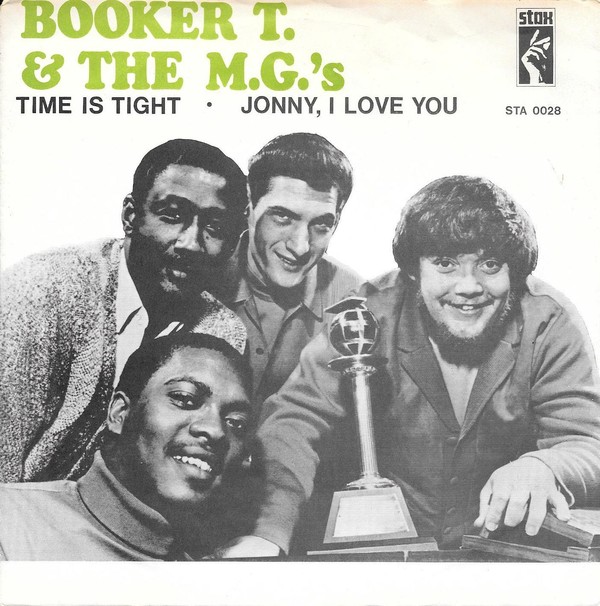
Today, Cropper has no reservations about revealing the MG’s’ inspiration for writing all those infectious instrumental tunes: “We wanted to make hit records, and we were greatly influenced by whatever was going up the charts. For me, this went all the way back to the first successful band I was in, The Mar-Keys. If you didn’t play the hits, people wouldn’t dance. The MG’s knew that if we didn’t make records that made people dance, they wouldn’t be hits.
“In the ’60s, every college had their own dance going on, and we played a lot of college dates,” he continues. “We’d also watch American Bandstand and pick up on the dances that were popular with different audiences. It wasn’t like today, when 5 million kids pick up on a record at the same time. Things were much more regional back then. Al Jackson had a real talent for working out the beats behind dances, like the camel walk and the stroll, and when we got back into rehearsal on Monday following a weekend of dates, the first topic of discussion would be the beats. Al would watch the steps and bring the most popular beats to our attention. Remember the jerk? Wilson Pickett’s ‘Midnight Hour’ was given a jerk beat.”
Although Cropper now owns a Pro Tools rig and has no problem sliding parts around to improve the track’s feel, he has strong opinions about the state of today’s music production methods. “You can take an old song, clean it up on a computer and make it sound great,” he says. “But when the computer itself is the source of the pulse, I think the basic soul, the energy, is gone. That’s the problem with loops and drum machines. I still play the same way I did 30 or 40 years ago: bouncing off the music and the singer. By the time they quantize my part and run it through Pro Tools, it ain’t really exactly the way I played it. Sometimes people want to throw a fresh coat of paint on when it’s not needed.
“I grew up fishing with my dad, and there’s something to be said about the energy that goes from the guy holding the pole all the way down to the fish. The way you handle the pole defines who you are as a fisherman. In the old days, we were making records that had that same pulse between living things. People heard it and felt it, and couldn’t wait to go out and buy a record. Same as the fish who, for some reason, can’t wait to hook himself on the pole of the fisherman who has the right energy.”
Certainly, “Time Is Tight” remains a living, breathing part of music history — the product of a four-piece ensemble at its creative peak. A simple, four-chord tune laid to tape with no overdubs, it is a consummate work of soul minimalism. Using no unnecessary gestures and the fewest notes possible, Booker T. & The MG’s produced textures that reflect quiet spaces and party places, reeling in audiences toward their unique sonic canvas, and in the process helping define the sound of the ’60s. In recognition for their contribution to so much of that era’s music, the Stax-Volt house band was elected to the Rock and Roll Hall of Fame in 1992, and they received a Lifetime Achievement Award at the Grammys this past February.
This article was first posted April 1, 2007.
